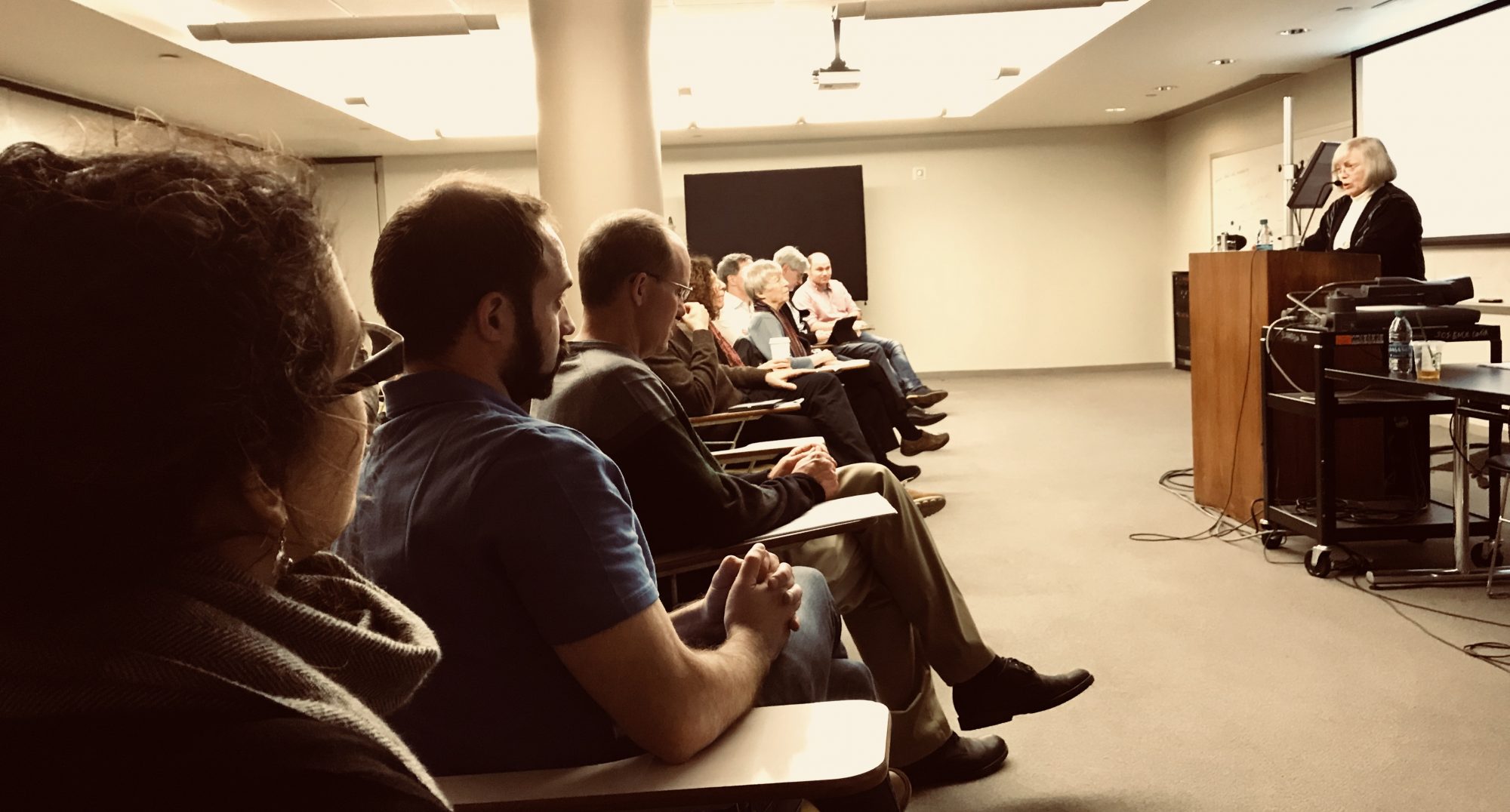The Archaeology subfield focuses on major theoretical issues of wide concern in anthropology (institutions and statehood, human environmental impacts, power and inequality, cultural flows and change), while at the same time providing rigorous training in archaeological method (lithic and pottery technology, spatial analyses, zooarchaeology and paleobotany, and archival analysis). The faculty maintains a strong tradition and solid basic training in the science of archaeology alongside a commitment to community archaeology and decolonial heritage practice. In recent years the Archaeology subfield has developed particular strengths in the study of historical ecology and climate change, materiality, foodways, and the archaeology of colonial encounters.
Archaeology faculty at the Graduate Center maintain major research programs on the historic and pre-Colonial North Atlantic, Mesoamerica, and Western Asia and the Mediterranean. These projects provide students with a broad range of field and research opportunities. Major facilities include bioarchaeology, zooarchaeology, paleobotany, and ceramics laboratories, and the Human Ecodynamics Research Center (HERC) at the Graduate Center. In 2019, the New York Anthropological Archaeology Research Consortium (NYAARC) was launched in collaboration with anthropology faculty from NYU and Columbia in order to combine our strengths and increase opportunities for student research and training. Additional relationships exist with Fordham University, Princeton University, and the American Museum of Natural History.
Sample Dissertations
- Justin D. Bracken 2021. Monumentality, Fortification, and Movement: Preclassic Maya Developments as seen at Muralla de León, Petén, Guatemala
- Brenda Nicole Prehal 2021. Handbook for the Deceased: Re-Evaluating Literature and Folklore in Icelandic Archaeology
- Nicole A. Rose 2021. Mobile Practices and the Production and Curation of Pottery: A View from the Ancient Southern Russian Steppe Using Portable Methods of Investigation
- Scott W. Schwartz 2021. The Material Culture of Temperature: Measurement, Capital and Semiotics
- Elizabeth D. Meade 2020. “Prepare for Death and Follow Me:” An Archaeological Survey of the Historic Period Cemeteries of New York City
- Megan Hicks 2019. Commmunity, Ecology, and Modernity: Faunal Analysis of Skútustaðir in Mývatnssveit, Northern Iceland
- Yuko Shiratori 2019. Constructing Social Identity Through the Past: The Itza Maya Community Identity Through the Late Postclassic Period (1250–1525CE)
- Alyssa Loorya 2018. Deconstructing City Hall Park: The Development and Archaeology of the Common
- Eileen Colligan 2017. Thule Iron Use in the Pre-contact Arctic
- Slobodan Mitrović 2016. Connectivity: An Ecological Paradigm for the Study of Bronze Age
- Seth Brewington 2015. Social-Ecological Resilience in the Viking-Age to Early-Medieval Faroe Islands
- Allison Manfra McGovern 2015. Disrupting the Narrative: Labor and Survivance for the Montauketts of Eastern Long Island
- Elise Marie Maragliano 2014. Households, Landscapes, and Post-Collapse Continuity in Postclassic Jalieza, Valley of Oaxaca, Mexico
- Colin Amundsen. 2008. “Culture Contact, Ethnicity, and Food Practices of Coastal Finnmark, Norway (1200 to 1600 A.D.).”
- Edith Gonzalez de Scollard. 2008. “Raising Cane: Sugar, People, and the Environment in Nineteenth Century Antigua, West Indies.”
- Cameron McNeil. 2006. “Maya Interactions with the Natural World: Landscape Transformation and Ritual Plant Use at Copan, Honduras.”
- James Woollett. 2003. “An Historical Ecology of Labrador Inuit Culture Change.”
- Sophia Perdikaris. 1999. “From Chiefly Provisioning to State Capital Ventures: The Transition from Natural to Market Economy and the Commercialization of Cod Fisheries in Medieval Arctic Norway.”
- Warren Perry. 1996. “Archaeology of the Mfecane/Difaqane: Landscape Transformations in post-15th century Southern Africa.”
Field schools
- Iceland
- Brooklyn
- Antigua
Links
- NABO (The North Atlantic Biocultural Organization)




